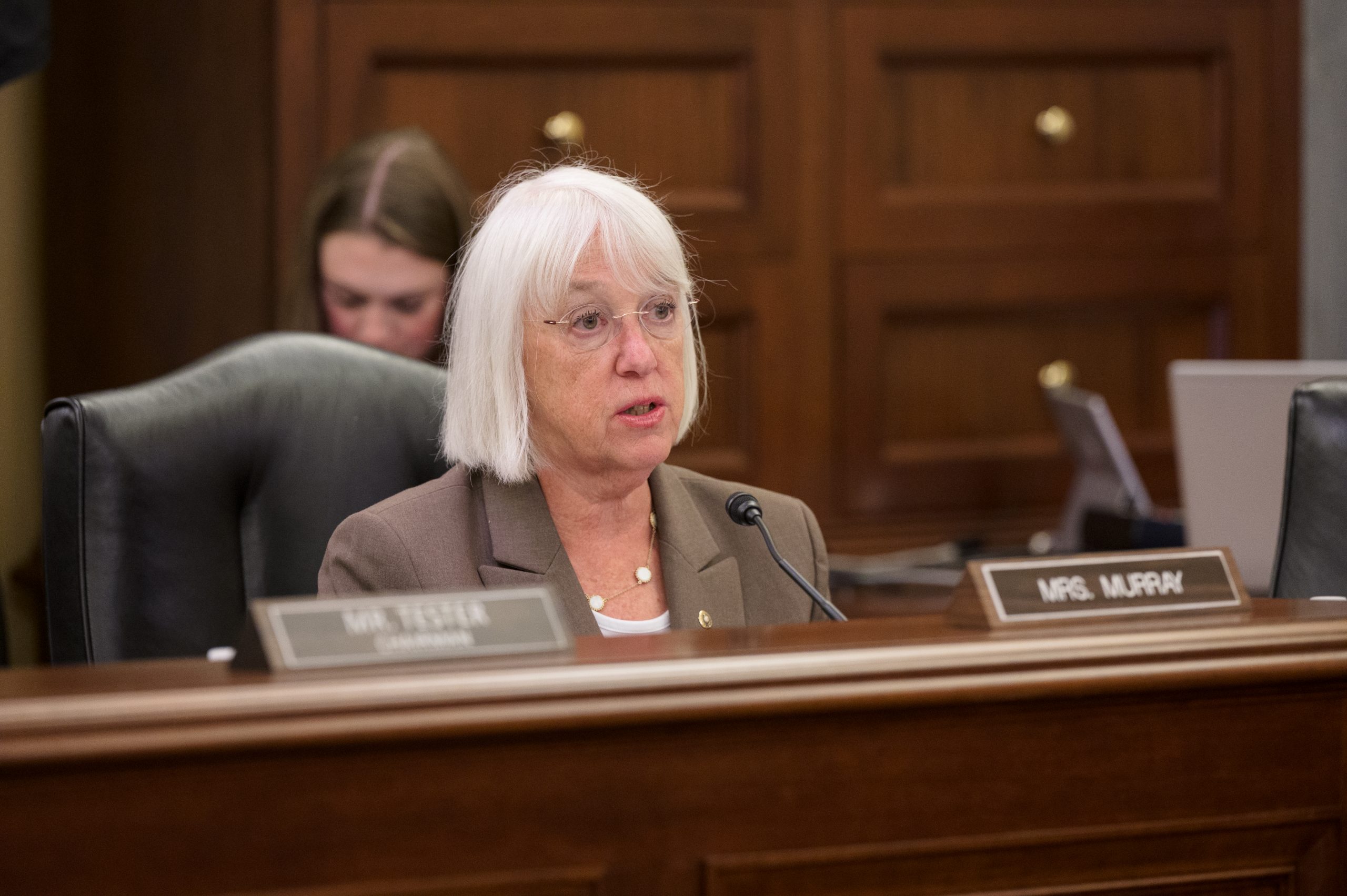Murray asks Yellen about Direct File, 45-V rulemaking, child tax credit, more
***WATCH: Senator Murray’s back-and-forth with Secretary Yellen***
Washington, D.C. — Today—at a Senate Appropriations Financial Services and General Government (FSGG) subcommittee hearing on the fiscal year 2025 budget request for the Department of the Treasury—U.S. Senator Patty Murray (D-WA), Chair of the Senate Appropriations Committee, discussed the indispensable role Treasury plays in protecting our economy and families’ pocketbooks and the importance of Congress ensuring it has the resources it needs in the coming year. In opening comments, she stated:
“We all know Treasury plays a pretty crucial role in keeping our economy strong and stable, and strengthening families’ financial security as well. And it plays an indispensable role in keeping our country safe.
“That’s why I have been insisting that we find a solution to address the extremely tight spending caps we are facing—and that any increase in defense spending is at least matched by a much-needed boost in domestic priorities here at home.
“For starters: Treasury is responsible for absolutely vital sanctions enforcement work to choke off funds to our adversaries like Russia and Iran—not to mention drug cartels and traffickers.
“It also regulates banks to keep our economy sound, protect our families, and prevent Main Street from paying for Wall Street’s mistakes.
“So, I want you to know I will keep working with my colleagues to underscore the need to increase vital non-defense resources at Treasury and so many other agencies.”
Senator Murray spoke about how the investments Democrats made in the Inflation Reduction Act have allowed the Internal Revenue Service (IRS) to improve customer service and modernize the agency—investments that have decreased call wait times from 28 minutes to 3 minutes and Direct File to allow people to file their taxes for free. Nearly 14,000 people in Washington state filed their taxes through the Direct File pilot this year. Senator Murray noted: “It is paramount we preserve these achievements through the annual appropriations process now” and asked Treasury Secretary Janet Yellen about how the president’s budget request and sustained annual funding will allow the agency to continue these improvements.
Senator Murray also asked Secretary Yellen about the Department’s proposed 45-V rulemaking related to Hydrogen Hubs, stating: “The Inflation Reduction Act has tasked the Treasury Department with an indispensable role in fighting the climate crisis. That law included a suite of clean energy tax credits, including 45-V, for the production of clean hydrogen. Now unfortunately, your proposed 45-V rulemaking has thrown up major roadblocks, which a vast coalition—including states, industry, labor—have made clear are not workable. Washington state is home to one of the cleanest grids and some of the strongest state climate legislation in the country and is already seeing investments put on hold as a result of the proposed rule. It is no exaggeration to say that getting this rulemaking right may deliver tens of thousands of high-wage jobs while reducing emissions. So, I want to ask you, how do you plan to address the concerns you are hearing and ensure the final 45-V rule helps—rather than hinders—the development of clean hydrogen projects?”
Secretary Yellen responded: “We have heard a great deal of input on the issue of hydrogen hubs. We asked for input when we issued proposed regulations on how we could identify circumstances where there is minimal risk of significant induced grid emissions. And one of the issues there is how to take account of state policies. And so, we have received input, and we are going to take that input into account as we revise the regulation.” Senator Murray asked: “Can you assure me when the final regulation comes out we will see a better regulation to make sure our states can actually use these investments?” Secretary Yellen affirmed: “We will try to address this issue.”
Senator Murray also asked Secretary Yellen about whether the Department has the resources it needs to implement the measures she enacted as part of the bipartisan retirement bill, SECURE 2.0, that she passed last Congress—and how permanently expanding the Child Tax Credit would help working and middle-class families and reduce child poverty.
###


